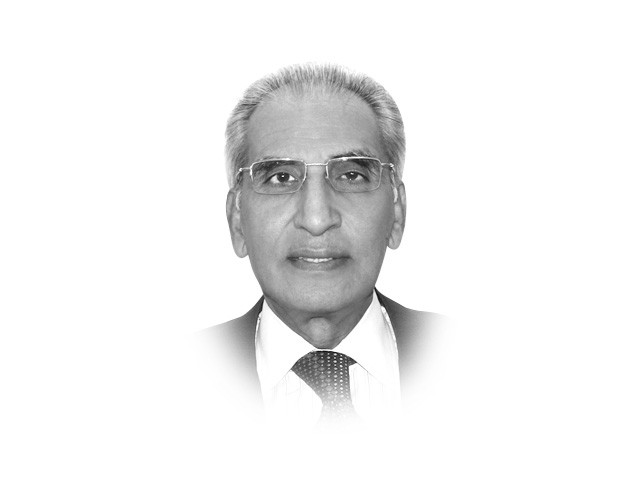Indian strategic thinking
India's 'Nonalignment 2.0' report should help Pakistan formulate its own long-term policies vis-a-vis India.

Earlier this year, a distinguished group of Indians attempted to fill the gap by releasing a comprehensive report entitled Nonalignment 2.0. Not surprisingly, it has unleashed a furious debate and some controversy, especially with regard to its most important recommendation — that India should refrain from strong strategic alliances with major powers, maintaining a policy of “non-alignment”. Critics fear that this would result in India losing strategic partners and becoming vulnerable to foreign pressures. Nevertheless, since its authors are influential figures, representing liberal and left-of-centre views, the recommendations may acquire increasing acceptance with the Congress government. It seems, however, that our own experts have missed it.
The report embraces both domestic and external aspects of national security and state power, while touching on relations with the major powers. It, therefore, deserves to be read in its entirety by our foreign policy formulators and executioners. However, because of limitations of space, this article will have to confine itself primarily to recommendations relating to Pakistan and in that context, to China.
Starting with the premise that Asia is the emerging fulcrum of global power, the report calls for close attention and a new approach to South Asia and the Indian Ocean because of their significance to India’s security. Consequently, it urges a comprehensive modernisation of India’s armed forces, supplemented by a modest consolidation of its nuclear capabilities to deter strategic coercion and nuclear terrorism. It expresses concern about China’s enormous “economic and strategic footprint” on the region and its likely impact on India. It is brutally blunt in pointing out that “China will remain a significant foreign policy and security challenge for India … as it impinges directly on India’s geopolitical space”. Even growing Sino-Indian trade is not without its downside, as the authors fear that it assists China’s “penetrations into India’s strategic sectors”.
While China poses a challenge, Pakistan is seen as posing “present and potential threats” to India. Though advocating a policy of “normal diplomacy” as well as deepening of economic relations, collaboration on water and energy issues and expansion of inter-societal links, the report calls upon India to make it clear to Islamabad that “the actual pace of negotiations would be contingent on its behaviour”. These measures would be reinforced by application of “negative levers”, including diplomatic pressures, reasserting India’s claims to Azad Kashmir and developing the capacity to mount punitive military operations in response to acts of terrorism.
Contrary to public perception, the report emphasises the superiority and relevance of “hard power”, even though it admits that the nuclearisation of South Asia has ruled out large-scale wars. It, therefore, recommends taking advantage of India’s location in the Indian Ocean, as well as the shift from the “paradigm focused on capture of territory to a paradigm based on destructive ability”. This is elaborated by highlighting the “employment of cyber and/or air power in punitive mode”, as well as “shallow thrusts” along the international frontier and the LoC. Most provocative is its recommendation that India should be prepared to “act on strong but less than perfect information”.
This report provides us with valuable insights into current thinking in New Delhi’s corridors of power, with regard to India’s national strategy. This should help us formulate our own long-term policies vis-a-vis India, neither encumbered by blinkers or inhibited by unfounded fears; in other words, with hard-headed realism.
Published in The Express Tribune, July 25th, 2012.
















COMMENTS
Comments are moderated and generally will be posted if they are on-topic and not abusive.
For more information, please see our Comments FAQ